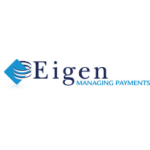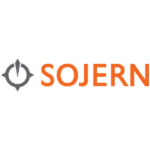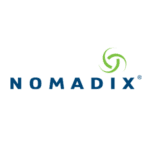
The evolution of traditional commission models is forcing travel agents to rethink their business strategies. As the industry grapples with increased demand and a shrinking workforce, agents find themselves under pressure to deliver exceptional service while navigating a complex financial landscape. To maintain profitability and competitiveness, travel agents must adapt to new revenue streams and optimize their strategic partnerships to help boost their earnings.
The commission conundrum Typically, travel agents earn commissions based on a percentage of the booking value from suppliers, such as hotels, airlines, and tour operators. Standard commission rates usually range from 5% to 15%, depending on the type of booking. This model has been the backbone of the travel agency business, providing a variable income stream that fluctuates with booking volume and market dynamics.
Over the years, many suppliers have reduced or even eliminated their travel agent commission. This shift creates an obvious challenge for travel agents, who must navigate a more complex commission environment while trying to maintain their earning potential. To thrive, the industry needs innovative commission models that empower agents and ultimately provide better experiences for travelers.
Travel agents’ biggest headache—solved Travel agents face several challenges when it comes to commissions, with timely payments at the top of the list. Many agents are frustrated with how often they chase their commissions and are increasingly seeking models that guarantee timely payments.
Another pain point is the complexity of collecting commissions from multiple suppliers. Booking directly with hotels can be advantageous in certain cases, such as with high booking volumes, but it becomes a hassle when dealing with numerous properties, especially for smaller bookings or those in remote locations. The time and resources spent chasing down individual payments can be substantial, detracting from agents’ core responsibilities.
Several industry sources estimate that many commissions involve discrepancies or outright nonpayment, creating significant financial uncertainty. Commission models that streamline this process, like ensuring full payment for all completed stays, allow agents to focus on providing exceptional service to their clients rather than chasing overdue payments.
Another key factor in commission structures revolves around how they’re calculated. Companies often quote a higher headline commission rate, but it typically excludes taxes and fees—which can make a significant difference in the travel agent’s paycheck.
Platforms like Expedia TAAP (Travel Agent Affiliate Program) pay commissions to travel agents based on the total gross booking value, including taxes and fees. Here, agents receive a fairer share of the total revenue from each booking with taxes and fees included in the commissionable amount. This creates a win not only for travel agents but also their clients. Since the platform isn’t marking up prices to fund higher commissions, travel agents benefit from a larger payout and their clients get more competitive prices. To top it off, Expedia TAAP offers travel agents the ultimate peace of mind with guaranteed paid commission on all completed stays.
This program also alleviates the burden many travel agents face of having to battle for their commission payments. Travel agents that use Expedia TAAP are guaranteed timely payments, as Expedia ensures that payments are sent to agencies the month after the booking is completed.
Ways to maximize commission earnings
A common question among travel agents is how to boost earnings and secure higher commissions. The answer lies in understanding booking platforms and the commission models they’re using.
In many cases, booking platforms offer tools to optimize commission potential. Tiered commission structures, for instance, allow agents to prioritize higher-paying bookings. Additionally, these platforms facilitate apples-to-apples supplier comparisons based on commission rates, incentives, and overall value. This empowers agents to select the most lucrative options while considering the effort required to collect commissions.
Leveraging platform loyalty programs, bundling services (like car rentals or package deals), and cultivating strong relationships with host agencies can further enhance earnings. Preferred partnerships often include exclusive perks and improved commission structures.
For agents working with or considering a host agency, they should seek to fully understand the preferred partnerships and their benefits, as these partnerships often come with exclusive perks and better commission structures. For agency owners, it’s crucial to regularly check in with their suppliers to ensure their benefits are being fully optimized. Assessing whether agents are maximizing their commissions and benefits from these relationships enables agency owners to make informed decisions when it comes to adjusting strategies or negotiating better terms, ultimately leading to increased profitability and more effective business operations.
As the travel industry continues to evolve, a reliable and profitable commission structure is essential for agents. By seeking out and adapting to modern, competitive commission models, agents can better manage their income, provide top-notch service to their clients, and thrive in a competitive market


















